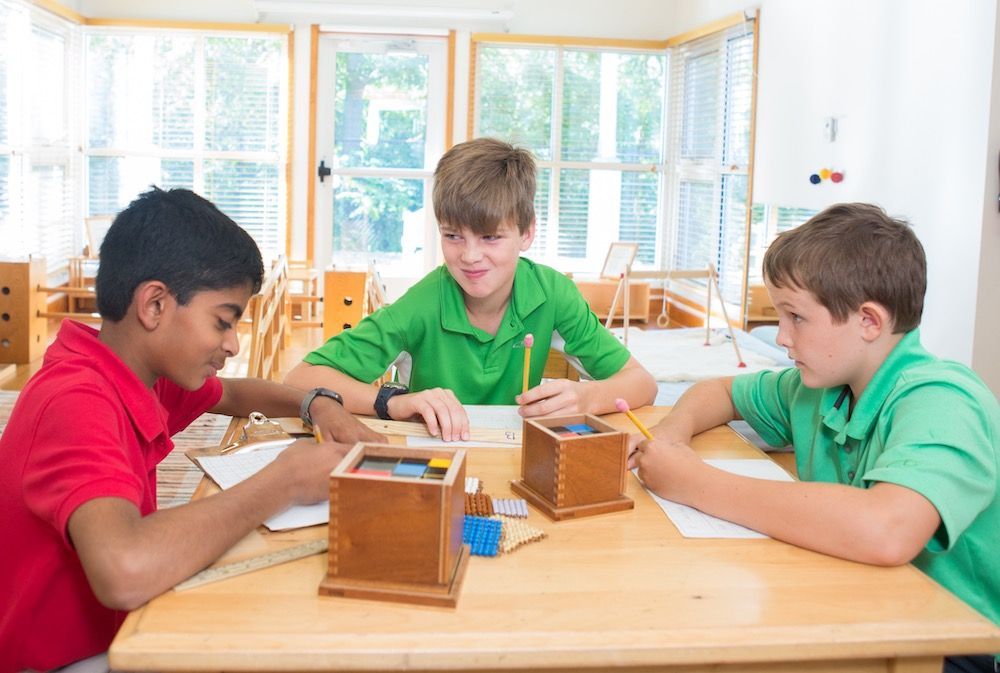
The Truest Form of Love & Compassion
We as a society are called to gentleness. We recall the twin towers falling 20 years ago in New York City and the change that had on our daily lives. More recently, we survived a global pandemic and all of the housing and economic ramifications it brought. We work, and we know what it is to be tired. We are decision-fatigued. Of course we crave gentleness. Gentleness should define our parenting approach. But we need to understand what that means and know that, for our children, it means something very different from what we might think of as gentleness.
Our children’s brains are very different from ours, and they have very little knowledge of the real world. As adults, we can see that beyond the limits we set, there are exceptions, ramifications, and different types of choices depending on mood, day, or many other factors. Because of our experiences, we can see from point A to point B. Beyond that same limit, our children might see nothing.
As parents, we have permission to be “the adults” and also to be gentle and forgiving of ourselves in this process. As parents we won't always be our best selves, but we can interact with our children with love on a daily basis and raise them to be good adults themselves.
We can do so with firm no-nonsense boundaries while also showing them love and compassion. In fact, I would argue that giving them boundaries is the truest form of love and compassion.
Initially this is the harder task. It would be much easier to give in to my children's whims but it would not serve them in the long run. I hope you're able to use this knowledge to raise your children with an easy gentle grace while still helping them learn resilience, strength, and self-control.
Respect
One of my deepest core beliefs, and the reason I became involved with Montessori, is that I believe children need to be respected. I, in turn, need to demand respect for myself.
The way you allow your children to treat you becomes their basis for how to treat others. It teaches them how they should expect to be treated and what they should allow in their own lives. If you are kind and firm but demand your own respect they will embody this.
This can look like:
Respect for your time:
“I am cooking now. Would you like to help or would you like to go and play?”
Respect in speaking to you: ”I see you need help with your shoes. Would you like me to give you the words to ask respectfully?”
Say what you mean and mean what you say:
- You set the limits of the house in accordance with your values, and, in turn, you make sure you are listened to and thus respected.
- You lay down the limits and are prepared to follow through. Keep them simple. Keep them consistent and keep them in line with your family’s values.
- You can fall back on a simple phrase whenever the limit has been reached:
“In this family we eat at the table.”
“Today is a school day, and we will need our school shoes.”
“We hold Mom's hand when we walk by the road.”
With gentle limits that don't disappear or change with time and circumstance (once the dust settles, because in many cases implementing new limits will be messy), you will have calm, happy children who are learning self-control, respect, and kindness.
If you model your boundaries at home on the simple tenets of respect for
● each other
● the home we live in
● ourselves
...you will have a calmer and more harmonious home life.
Kindness Is Self-Control
It is kind not to yell.
It is kind not to push and shove.
It is kind to not take from someone's hand.
You would be appalled if you saw your child doing this to another child. You would call the police if you saw an adult doing it to another adult. Remember: We are raising our children to be members of society. If they can't respect and listen to you, how can we expect them to show respect and listen when it really counts?
If we don't teach our children kindness, respect, and self-control, society will do it for us. Society does not love our children nearly as much as we do, nor will it give them the grace and understanding that we would.
Giving Scaffolded Choices
Allowing children to choose strengthens their executive functioning and their sense of self. Choice is a fundamental tenet of the Montessori approach. However, it’s important to note that children should be offered appropriate choices.
It is not appropriate for a child:
● to make a life changing choice such as where they go to school or live.
● to choose something that goes against the rules at home.
● to choose something that goes against their community guidelines in school or in the wider world.
● to make a potentially dangerous choice, such as going out in the cold without a coat or running by the road.
It is appropriate for a young child to make choices within the scaffolding we have set in place. This allows them to make safe and appropriate decisions and thus be successful in their decision making.
What this can look like:
“You may pick an outfit for school from your school clothes drawer.”
“You may choose a cup for dinner from your cabinet.”
“Would you like orange juice or milk with dinner?”
The Power and Compassion of No
You have the power to give your child the gift of no in a respectful and loving way. You can do so in an environment they trust and feel safe in.
It is hard to be vulnerable and face rejection. But we all will in our life. If your child first hears no from you they will not have to hear it for the first time as a teenager from society at large, and in a much more devastating and spectacular way.
You get to set their first limits and you get to set it in the simplest of situations:
“No, we will not get candy from the grocery store” is a lot less scary than, “Miss, you were going 20 over the speed limit.”
Positive Parenting vs. Passive Parenting
You don’t have to use the word no excessively, nor do you need to spend extensive time in direct conflict with your child. In fact, if you make it a battle between you and your child, you will always lose. When you are clear with boundaries, your child will simply come up against a limit that has already been set.
You lay down the limit and are prepared to follow through:
“We had five more minutes at the park but now it's time to go. Do you want to walk or should I carry you?”
vs.
“No, it's time to go,” or
“Fine, we can stay until you’re ready.”
“We keep our toys in the playroom”
vs.
“No, you may not have your stuffed toy at the table,” or “You can have an extra cookie if you put the stuffed toy away”.
Self-Esteem
Parenting with gentle intent is not only setting limits on what your child may do, it is also setting limits on what you will do for your child. We make so many of our parenting decisions based on wanting our children to grow up to have true self-esteem and an ability to love themselves and contribute to their community. Given this, it is important to examine what behaviors will actually accomplish this goal.
It is tempting to believe that when we let our children make constant decisions and when we take care of their every need and desire we are showing them love and building their self-esteem. I do not believe this is true. I believe (and research shows) that our child’s self-esteem is directly tied to how much they can do for themselves.
If you are dressing your three-year-old, feeding your three-year-old, and carrying your three-year-old when they don’t want to walk, you are teaching them that they are helpless and not able to fend for themselves in any way. This is not love. This will not build their self-esteem.
The Montessori approach is full of ways to support our children’s independence and encourage them to engage with life on their own positive and productive terms. By taking advantage of these important lessons and philosophy, I know I am giving my children and my students an important foundation for their self-esteem, feelings about themselves, and later success in life. This means that I am, once again, holding firm to expectations for their capabilities and boundaries for my own actions in order to love them as best as I can.
Final Thoughts
Like you, I want to raise my sons and daughter to be both kind and strong. I want them to question a decision they find unjust. I want them to think outside of the box. But at this time, when they are young (ages 9, 7, and 2) and have little understanding of cause and effect, I need them to respect the rules I have put in place, as well as the rules of the society I'm raising them in and the school I have thoughtfully chosen for them. I am not looking to rear my children in some old-fashioned standard of parenting in which I am the adult and therefore more worthy of respect and must be listened to at all costs. However, I am the adult and out of respect for my children I will help them learn self-control through limits.
I teach children differently than I did 12 years ago. I am, in fact, much more tender than I was before. The prevalence of screens and our fast-paced lifestyle have created stresses previously unknown in earlier generations. I am cognizant of this. However I have not strayed from my core belief that children thrive with limits and that these limits make them feel safe and loved. I know I am doing the best that I can for my children and for society when I give them boundaries and care—and infuse both of these actions with love.


